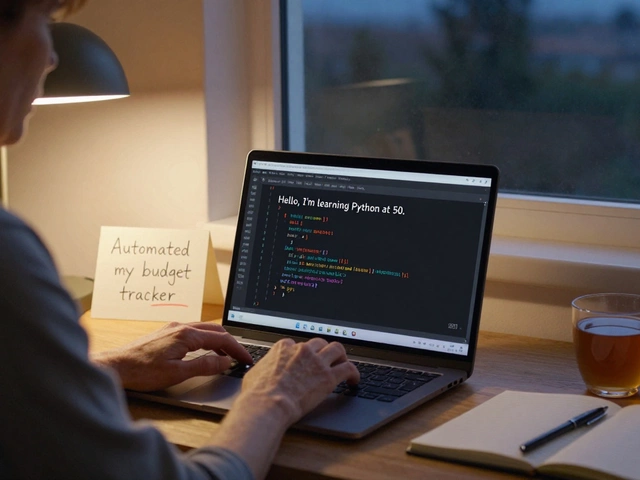
Ever noticed how the people who write code seem to be everywhere these days? Whether you’re scrolling job sites, looking at salary charts, or just chatting with friends, the word “coding” pops up all the time. Some folks imagine endless cups of coffee and sitting at a screen, writing mysterious lines like some wizard. But is this the golden ticket to a better life, or just another overhyped idea?
The Demand for Coders: Hype or Reality?
Let’s get this out of the way: there’s a ton of noise around coding. Is it deserved? Well, look at the numbers. According to New Zealand’s Ministry of Business, Innovation and Employment (MBIE), the tech sector pulled in over NZ$13 billion in 2024, with software jobs making up more than 50% of the vacancies in tech. It’s not just in New Zealand either. Seek.co.nz had over 4,000 open roles for “software developer” or “programmer” at any given point this past year. In Australia, those numbers are tripled. Major companies in Wellington and Auckland are battling to outbid each other for developers because startups and established giants both need tech brains now, not later.
The global story lines up too. In 2023, the U.S. Bureau of Labor Statistics reported software development jobs are projected to grow by 25% through 2032. That's a lot faster than other jobs. Almost every business wants someone who can code, from insurance giants to tiny coffee brands setting up online sales. Even non-tech teams are hunting for folks who can write scripts to automate tasks or pull together dashboards. The bottom line—if you learn to code well, you can usually find work. But that’s only half the story.
What’s It Actually Like to Work in Coding?
Here’s where the fantasy meets reality. Forget the stereotype of the lone hacker in a dark room. In real life, most programmers spend way more time reading and understanding code than firing off original lines. You’ll spend meetings explaining your work to teammates who might not even know what JavaScript is. Sometimes you’ll hit “run” and everything works... more often, it’ll break and you’ll hunt the bug for hours. Debugging isn’t glamorous, but it’s a big part of the job.
The other surprise is just how much teamwork matters. Even if you love solo projects, you’ll still have to work with designers, managers, and customer support. If you want to get promoted past junior roles, soft skills—yep, things like talking clearly and managing your time—become just as valuable as coding.
Deadlines are part of life. Some days, you win early and have time for a mid-afternoon surf at Lyall Bay. Other days, you scramble to fix a last-second bug at midnight because a launch is going live in Australia. The stereotype of the 100-hour week is rare in New Zealand tech, but crunch time does happen, especially just before product launches or big projects.
- Meetings eat up time—even for developers.
- You’ll review other people’s code, and get yours reviewed, daily.
- Learning is non-stop; there’s always a new tool or framework.
- Remote work is common, but not universal. Hybrid setups are the new normal.
Pros and Cons of a Coding Career
Let’s be brutally honest for a moment. Coding isn’t for everyone, and that’s fine. If you like solving puzzles, fixing things, and have patience for details, you’ll probably enjoy it. If you get bored easily or hate sitting down for hours, the “slog” part might get to you fast. Here’s a straight-up list:
- High starting salaries—Entry-level roles in Wellington often start at NZ$60,000–NZ$75,000, rising to over NZ$150,000 for senior developers in big companies by 2025.
- Globally flexible—Once you have experience, you can often work remotely or seek overseas gigs. Kiwis are especially in demand in Sydney, London, and San Francisco sites.
- Room to specialize—You can shift from making mobile apps to running cloud servers, from building games to wrangling data with AI.
- Job security—Not many industries dodge big layoffs, but tech bounces back quickly after dips.
But even the high points have shadows:
- The learning never stops. If you hate constantly adapting, it gets old, quick.
- Burnout is real. Pushing hard every week, even with good pay, can wear you out. Mental health surveys from Stack Overflow find about 60% of devs admit to work stress.
- Not all coding is creative. A lot of jobs are bug fixing, maintaining old code, or making very minor updates. If you dream of building the next killer app every day, you might be disappointed.
- Imposter syndrome is common. Even senior devs worry they’re “faking it.”
Tech isn’t always the meritocracy people think, either. There’s bias, office politics, and glass ceilings—though the field does try harder than old-school industries to address these. Don’t expect the perfect workplace by default.
| Role | NZ Average Salary Range (2025) | Main Skills Needed |
|---|---|---|
| Junior Developer | NZ$60k – 75k | JavaScript, Python, Teamwork |
| Mid-Level Developer | NZ$80k – 120k | React, SQL, Cloud Basics |
| Senior Developer | NZ$130k – 170k | Architecture, Mentoring, Security |
| DevOps Engineer | NZ$120k – 180k | Automation, Linux, Networking |

What Skills and Qualities Make a Good Coder?
Here’s something that might shock you. The best coders aren’t always the ones who started as maths prodigies or gaming nerds. In Wellington, some top software engineers I’ve worked with made career switches from teaching, carpentry, even music. Here’s what counts most:
- Problem-solving mindset
- Patience (you’d be amazed how long it can take to squash one bug)
- Tolerance for ambiguity—you won’t always have the answer right away
- Ability to work with others, both techy and non-techy folks
- A love of learning (think curiosity, not exams)
If you don’t tick all these boxes straight away, don’t stress. You can pick up most of them on the job. Coding bootcamps in NZ like Dev Academy or Enspiral Dev Academy can help adults switch careers in 12–24 weeks. The classic university route is still valid, but not essential. Plenty of coders are self-taught, using YouTube, freeCodeCamp, or Coursera. The trick is pushing through the stage where it feels impossible. Even top engineers still search Google for answers every day.
One more thing nobody tells you—communication is half the battle. Coding is teamwork. You’ll explain code, pitch ideas, and sometimes even write documentation for people who don’t code. If you can break down tricky ideas for others, you’ll always be in demand.
How to Get Started: Tips for Breaking In
If you’re reading this and thinking, “Maybe I could do this,” you’ve already passed the first test: curiosity. Now let’s look at some concrete steps.
- Pick one programming language. Beginners often start with Python because it’s readable and useful everywhere from web apps to data science. JavaScript is another popular choice, especially if you’re drawn to websites or mobile apps.
- Build small projects as quickly as possible. Don’t just read articles—make something, even if it’s a simple calculator or to-do list app.
- Join local or online coding groups. Wellington has communities like Code Club or Meetup groups where folks help beginners. Being part of a tribe makes the journey less lonely and way more fun.
- Don’t be afraid to Google. Everyone does it, no matter how senior they get. Stack Overflow and GitHub are lifelines, not cheat codes.
- Create a portfolio—this matters way more than a perfect CV. A handful of working projects (hosted on GitHub, linked from a basic website) show what you can do.
- Apply for internships or entry roles. Don’t wait until you “know everything” (which never happens). Most new hires get trained on the specifics anyway.
If you want a bootcamp, check places like Dev Academy NZ—places like these will get you job-ready with real projects and industry mentors, usually in under six months. If you like learning on your own, dive into free courses and build stuff for friends or local groups to get practical, not just theoretical, skills.
Some useful learning platforms:
- Codecademy (interactive courses for beginners)
- freeCodeCamp (tons of free, project-based content)
- Coursera and Udemy (for specialized or broader learning)
- LeetCode or HackerRank (practice your skills for job interviews)
Don’t stress if you hit walls. Every coder does. The key difference? Pushing on, asking for help when you’re stuck, and not taking it personally when nothing works on Friday afternoon.
Life Beyond the Screen: Lifestyle, Flexibility, and the Road Ahead
Alright—so there’s good money, international opportunities, and plenty of jobs. That’s great, but coding changes your lifestyle, too. Coders usually get way more flexibility than many other workers, especially post-Covid. Working from home, starting late if you’re a night owl, or even doing your job from a beach in the Coromandel—it’s all possible in the right company. The remote revolution hasn’t just minted a few digital nomads; in Wellington’s tech scene, “WFH Mondays and Fridays” is almost standard policy.
That freedom cuts both ways, though. If you’re not disciplined, you can fall into weird hours or let work creep into weekends—easy to do when your “office” is your laptop. Burnout isn’t a myth, and you need to draw lines early on. Experienced coders in town recommend setting work “rituals” — simple routines like a morning walk, strict lunch breaks, or evening time away from screens. Don’t skip exercise, social catch-ups, or time outdoors. If you’re not careful, coding can be isolating as a job, so keeping up with mates and hobbies isn’t just fun—it’s essential.
The industry does reward skill and hustle, but luck and timing matter too. Tech companies do go bust, projects get cancelled, and layoffs happen, just like anywhere else. But programmers tend to get re-hired faster than most other roles, partly because there just aren’t enough skilled people out there yet. If you’re worried about AI or automation replacing coders—yes, basic tasks will change, but someone still needs to tell the machines what to do, fix weird edge cases, and talk to the humans. It’s a long way from computers writing their own code for everything.
Finally, tech is surprisingly open to people making career switches. You’ll find people in Wellington who left hospitality or nursing to become coders. Some joined straight out of uni; others made the leap at 40. There’s no expiry date on curiosity or resilience.
So is coding a good career? For many, the answer’s a loud yes—but only if you enjoy the work itself, not just the paycheck. If you like puzzle-solving, don’t mind a bit of chaos, and love learning new things, you’ll fit right in. If you want a cushy, easy ride? Better look elsewhere—coding will call your bluff fast.




